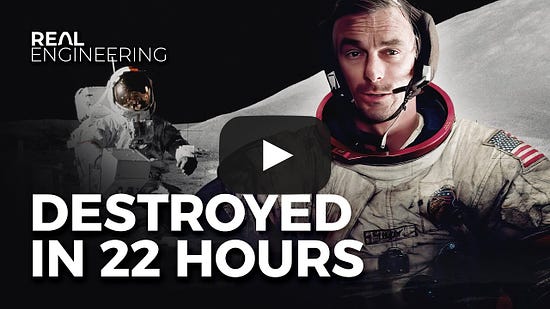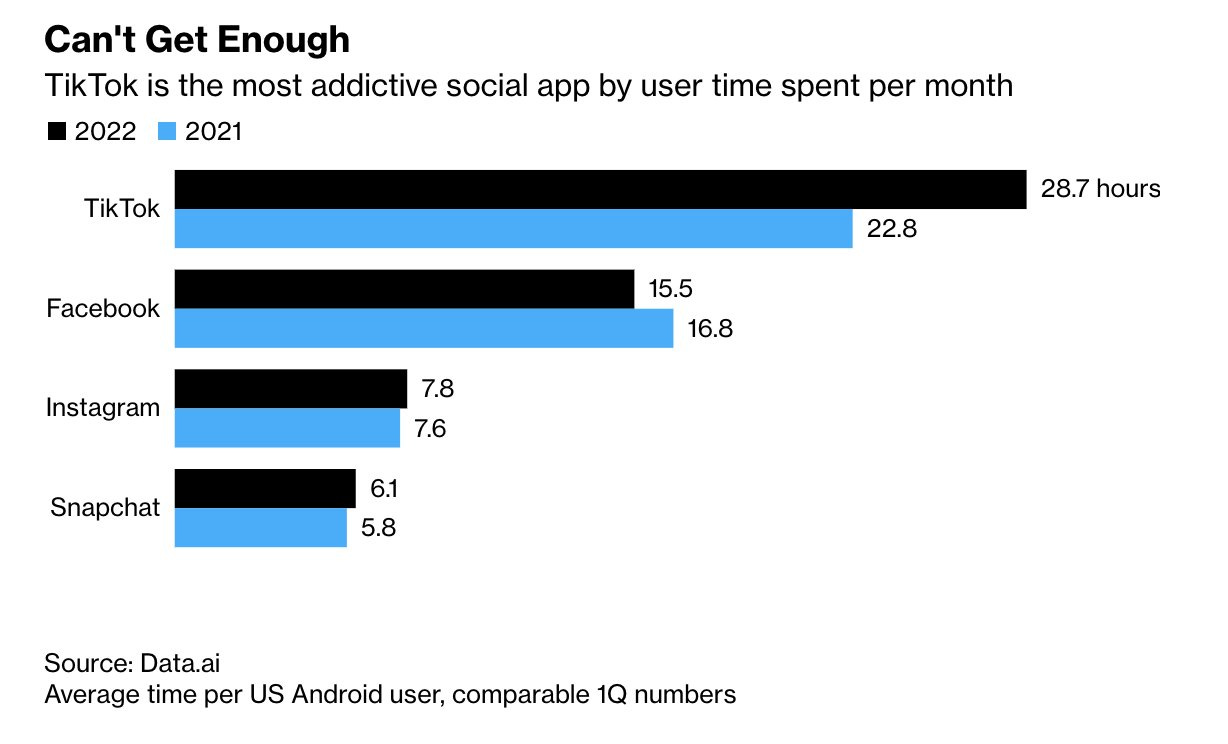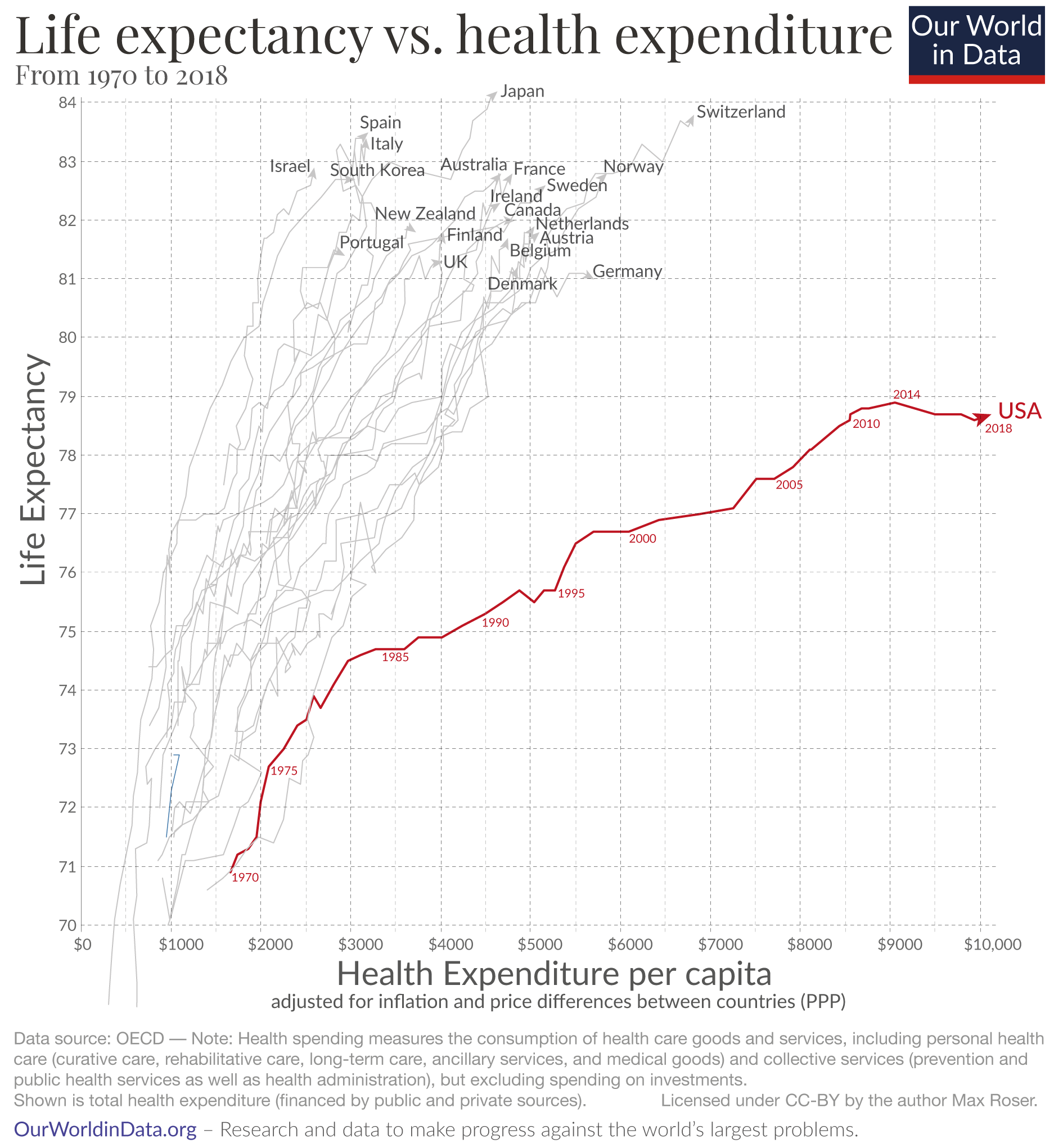Hi there, it’s Mehdi Yacoubi, co-founder at Vital, and this is The Long Game Newsletter. To receive it in your inbox each week, subscribe here:
💌📱 We’re inviting more and more people to Vital. Do you own an Apple Watch, a Garmin, an Oura ring, or something else? Let me know 👇
Join Vital
In this episode, we explore:
Getting the devs jacked
Happiness is incremental
Don’t read history for lessons
The great unbundling of consumer social
Social Comparison Orientation and Its Correlates
Why is life expectancy in the US lower than in other rich countries?
Let’s dive in!
🥑 Health
🦾 Getting the Devs Jacked
This was the best and funniest article I’ve read recently. I wish I had written it! I might take some time to write my version of how to build muscle and get stronger, but in the meantime, I highly recommend this one:
I know the headline says “devs” but this is not only for the devs. Whether you’re a VC, founder, advisor, trader, angel investor, community manager, or operator - this is for you. This is for all of you who need to get in shape.
There is no more DeFi summer, Kusummer, or Solana summer. There is only “world of atoms summer” (not shilling Cosmos here) and I know that scares you because you spent too much time flexing NFTs and you have no chesticles to flex. And if we discuss flexibility below, I will be not referring to your ability to flex.
Then, the ten rules:
Don’t get cocky
Don’t frame poor results as great ones 😅
Make a plan, set some goals
“When it comes to goals it’s easy: set a number you’d like to lift on the bench press, deadlift, and squat. If you don’t squat because “you got a bad knee” then fix it! It’s just an excuse.”
Bigger pecs=fatter checks
“A rule that will get you far in life is that you can trust a man who benchpress a lot. And you wanna be that guy. Because if you bench-pressed heavy that means you know what it feels like to lift a bag above your head that can literally smash your face inwards.”
More plates=more release dates
“Whether it’s a simple linear progression or some sophisticated periodization make sure you’re getting stronger. I hate to break it to you, but you have to at least:
Benchpress 1.25x your bodyweight
Squat 1.5x your bodyweight
Deadlift 2x your bodyweight
And these are ridiculously low standards.”
I agree with these standards; they’re good initial goals to root for.
Try the Bulgarian method of training to understand the pain
It will test you mentally like few other things. Also, this is more “Bulgarian inspired” rather than Bulgarian.
Forget bodyweight, functional, apocalisthenics, and other BS
“I can’t stand this nonsense. Everybody wanna look swole but nobody wanna pump iron. “Hey man, I don’t wanna get too bulky!” - Well you ain’t gonna anyways. If you’re not a genetic prodigy (trust me you are not) it’ll be very hard to get bulky (if you don’t mean fat because that’s easy).” 🤣
Jokes aside, bodyweight stuff can get you results, but if you can have access to weights it will be much better (very hard to build a strong lower body without weights)
Count calories & know how to bulk and when to cut
I don’t entirely with “counting calories.” It can help a first to get a clear picture of what you consume and what you should be consuming, but the ideal is intuitive eating if you manage to. Counting calories is so annoying to do daily.
“Supplementation”
People tend to overthink this one. If your training is on point, and you eat well, you won’t need anything.
“The diet (aka real food) should provide for most things. If you want to know what you need to supply in addition to your diet, get bloodwork done. These days there are companies that can test you and send you tailor-made supplements for your deficiencies.”
Pair with: General notes on supplements
Take care of your recovery
This one is important. Recovery doesn’t only mean resting. It also means nutrition, sleep, etc.
Do Crossfit! [I don’t agree with this one 😅]
Nothing against Crossfit per se. I just think there are way better and safer ways to train!
If you came here for real tips and you wanna start lifting then please read this to understand that you suffer from Fuckarounditis. For a solid workout plan with background info, any of Jim Wendler’s 531 books should do. In terms of a deeper understanding, any content by Kabuki Strength is gold. For dieting tips, I’m a fan of Berkhan’s Leangains method and Efferding’s Vertical Diet. (🔗 in the piece linked above.)
🌱 Wellness
🧗♂️ Happiness is Incremental
Two things made me think of a similar idea this week: reaching a “destination” is absolutely not what will make you durably happy. The journey is what matters. You might think it’s obvious, but it’s still very common to see people think and act otherwise.
First, this tweet:
Then, this article:
Becoming famous is amazing.
Being famous is a mixed bag.
Losing fame is miserable.
The amount of fame almost doesn’t matter. It’s the trajectory that people cling to.
Same with money. I think for a lot of people the process of becoming wealthier feels better than having wealth.
If it’s wealth we were after, most of us would feel great, because most of us are unfathomably wealthier than we were a generation or two ago. Or ten years ago. Or five years ago. Or two years ago!
What feels great is being on an upward path. That’s when dopamine takes over. That’s when you can extrapolate it and assume it goes on forever, and compare yourself to where you were before, and feel like nothing can stop you.
When that path declines – even if it happens when you have a level of wealth you couldn’t fathom a few years ago – the whole sensation shatters.
Share
🧠 Better Thinking
🏰 Don’t Read History for Lessons
It’s tempting to think we can read history to find lessons for the present day, but this often leads us to the wrong conclusion. This is an excellent article on the topic:
The reason I think this way is because I’m sympathetic to the two criticisms most typically levelled against learning from history. To summarise crudely, the two arguments go something like:
Everything in life is path dependent. A lucky break early in a person’s career makes all their latter successes easier; a lucky decision early on in a company’s life makes their latter projects more likely to succeed. You can’t replicate a company’s success, nor learn from their failures, if you don’t also replicate their path. And it is impossible to replicate their path. As a throwaway example, think back to the legendary, non-exclusive deal IBM made with Microsoft for MS-DOS in 1980 — which allowed Microsoft to sell DOS to every other PC-compatible manufacturer. This deal is often described as “IBM’s great mistake”. Had they not done the deal, Microsoft would have had a very different set of opportunities in the ensuing decade. But IBM did do the deal with Microsoft, and that, in turn, set the stage for Microsoft’s dominance in operating systems for years afterwards. It may not be useful to learn the lessons of Microsoft’s history when much of what they accomplished hinged on chance events and idiosyncratic decisions in their past.
The second argument against reading history is even more harsh. The argument is that accountings of history are not accurate, and can never be accurate, thanks to the narrative fallacy. By its nature, narrative necessarily compresses reality into some coherent tale, meaning that accountings of history tend to overemphasise intention and action, instead of the more plausible ‘random actions by actors in a complex adaptive system, conspiring to create unexpected results’. This is a roundabout way of saying that whatever histories you read are most likely wrong — and not even a good representation of reality.
Ok, so what should we read history for, you might ask.
I’m coming around to the idea that you should not bother with generalisable lessons — or at least, to be extremely conservative when you attempt to do so. Instead, you want to think “ok, this is an instance of <concept>, and this is one additional way this can show up in the real world.” To reiterate one of the central claims of CFT: experts in ill-structured domains reason by comparison to fragments from prior cases they’ve seen — one implication is that concepts are represented not as abstract principles in their heads, but a cluster of real world cases that serve as prototypes.
The goal of reading from history, then, is to expand the set of prototypes in your head.
Treating history in this manner sidesteps many of the problems we’ve discussed earlier. You don’t have to worry about path dependence, for instance, since you’re not drawing tight lessons from specific scenarios. Nor do you have to care as much about the narrative fallacy — if you have enough samples of the thing in action, your brain will be able to pattern match against the similarities across cases, never you mind that retellings of each case may be inherently flawed. When you’re hunting for concept instantiations, the criticisms of historiography are a wash; they fall to the wayside.
Pair with: Silicon Valley History
⚡️ Startup Stuff
📱 The Great Unbundling of Consumer Social
The 2020s is the decade of the great unbundling of consumer social. This piece explains why:
So let’s step back into the theory. When do “bundling” and “unbundling” occur more broadly?
Bundling takes place when companies can stack up customers’ willingness to pay by providing a package of services, rather than providing each service independently. Chris Dixon has a great microeconomic explanation of this.
Unbundling takes place where the opposite is true: companies can extract more value by isolating one element from the bundle, and offering it as a standalone service. This allows the unbundler to disrupt the bundler by:
Method 1: The unbundler having more efficient pricing (because eliminating expensive parts of the bundle lowers the unbundler’s costs), OR
Method 2: The unbundler having better service quality (because the unbundler builds the product specifically around the unbundled use-case)
The whole thing began with TikTok unbundling Instagram and creating a platform better suited for entertainment than Instagram is.
Have a look at your Instagram feed. As you enjoy the ever-weaker dopamine hit coursing through your veins, note that two categories of content will quickly emerge:
“Social” (your friends and family): Wedding photos, messages from friends, group video calling, perhaps even the odd “I’m humbled to announce…” or #TBT
“Entertainment” (creators): Memes, cooking tutorials, pranks, shopping, influencer #ads
So, by a series of product decisions that sacrificed “social” features, TikTok has made a dramatically more entertaining product than Instagram (and, arguably, elements of Facebook, Twitter and YouTube, all of which started as “social” apps).
So the entertainment part was unbundled by TikTok. What about the social part? Companies like BeReal, Zenly, and Snap are taking care of it:
Take BeReal as an example: the app is minimalistic, and does not feel designed to “entertain”. By encouraging users to take one photo per day to share with their friends, it allows people to keep up-to-date with their loved ones, while sharing their updates in a low-effort way.
Feels, Discord, Sendit, Zenly, NGL and others have similar social-first attributes.
So although BeReal and other equivalents remain in early innings, I believe that there is a generational opportunity to unseat Instagram (possibly with several apps to start, instead of one monopoly).
Why now? Because with unbundling: when it rains, it pours. Now that TikTok has taken leadership of “entertainment”, Instagram’s bundled offering becomes even less compelling, and competitors focusing purely on “social” have a unique opportunity to grow share.
As Creator Economy thought leader Hugo Amsellem puts it: we are in a “Loneliness Economy”, and these social apps can fill this gap.
Pair with:
📚 What I Read
On social comparison:
Social comparers prefer to make everyone else worse off, if it means they will obtain a relative advantage.
Also unsurprisingly, social comparison was highly correlated with competitiveness (“I judge my performance on whether I do better than others rather than on just getting a good result”).
Interestingly, researchers have discovered that even controlling for self-esteem, social comparison was associated with feelings of envy, guilt, and regret. In other words, even if two people have the same baseline level of self-esteem, the one who is more prone to social comparison will experience more negative social emotions.
In sum, people who habitually compare themselves with others tend to score highly on:
Psychopathy
Narcissism
Malicious envy
Guilt
Regret
Something beyond rising energy and labor costs is leading to sticker shock on once-cheap urban amenities.
Several weeks ago, I needed a ride home after some late-night drinks about two miles from my place in Washington, D.C. I pulled up the Uber app and entered my address. When the price on the screen popped up, I assumed I’d entered the wrong street, and perhaps the wrong state. I carefully retyped. But the same price appeared on the screen: $50.
That’s outrageous, I thought; $50 for a 10-minute ride? Then I kept thinking. Aren’t gas prices and inflation near half-century highs? Isn’t the labor market so tight that low-paid workers are switching jobs at historic rates? Isn’t nominal wage growth rising fastest for the kind of workers most likely to drive for Uber? Yes, yes, and yes.
But something beyond rising energy and labor costs led to that startling price tag. With markets falling and interest rates rising, start-ups and money-losing tech companies are changing the way they do business. In a recent letter to employees, Uber’s CEO, Dara Khosrowshahi, said the firm needs to “make sure our unit economics work before we go big.” That’s chief-executive speak for: We gave Derek a nice discount for a while, but the party’s over and now it costs $50 for him to get home.
Pair with: Ads are coming to your Uber app
Why do Americans have a lower life expectancy than people in other rich countries, despite paying so much more for health care?
The US clearly stands out as the chart shows: Americans spend far more on health than any other country in the world, yet the life expectancy of the American population is shorter than in other rich countries that spend far less.
The chart here doesn’t just show the latest data points, but how life expectancy and health spending have changed during the last five decades. The arrows start in 1970 and connect the annual data points for both metrics, showing the change over time.
In the 1970s the US didn’t stand out at all, it does so now because life expectancy increased much more slowly than in other countries. At the same time, health spending in the U.S. increased much more rapidly, particularly since the mid-1980s. The consequence of these two exceptional developments is that the US followed the much-flatter trajectory that the chart shows.
The unequal development over recent decades led to an inequality between the US and other rich countries. In the US health spending per capita is up to four times higher, yet life expectancy is lower than in all of these countries.
How social media status contests are shaping our reality.
The competition is along the other axis: cultural capital. When it comes to political Twitter (I’ll stick to Twitter here since it’s the platform I know best and also the one where this status competition is the most brazen), there’s a very specific kind of cultural capital that predominates: the specialized language and esoteric knowledge of wokeness. As I’ve noted before, exhibiting your familiarity with and fierce commitment to the political sensibilities of elite four-year college-educated urban professionals today serves the same function that driving a Lexus with a Stanford bumper sticker did in the pre-internet days: it indicates your elevated class position and thus your rightful place on the status hierarchy. This is what I’ve called “moral capital.”
🍭 Brain Food
👫 Data Science and Dating
This was an interesting piece on online dating and data science. As most dating now happens online, we can understand human preferences like never before.
So, what traits make people desirable to others?
Well, the first truth about what people look for in romantic partners, like so many important truths about life, was expressed by a rock star before the scientists figured it out. As Adam Duritz of the Counting Crows told us in his 1993 masterpiece “Mr. Jones”: We are all looking for “something beautiful.” The conventional attractiveness of a mate is the number one predictor of how many messages someone gets, for both men and women. We are also looking for:
someone tall (if a man)
someone of a desired race (even though most never admit it)
someone rich
someone in an enforcement profession (like lawyer or firefighter) if a man
someone with a sexy name (such as Jacob or Emma)
and someone just like ourselves (people are 11.3 percent more likely to match with someone who shares their initials)
The interesting part is those traits do not correlate with romantic happiness. So all humans compete for attributes that do not make the future couple any happier than if those desirable traits were absent.
If I had to sum up, in one sentence, the most important finding in the field of relationship science, thanks to these Big Data studies, it would be something like this (call it the First Law of Love): In the dating market, people compete ferociously for mates with qualities that do not increase one’s chances of romantic happiness.
Moreover, if I had to define the qualities that are highly desired even though they don’t lead to long-term romantic happiness, I would call many of them shiny qualities. Such qualities immediately grab our attention. Just about all of us are quickly drawn to the conventionally beautiful, for example. But these attention-grabbing, shiny qualities, the data suggests, make no difference to our long-term romantic happiness. The data suggests that single people are predictably tricked by shininess.
Pair with: Data Scientist Exposes Men & Women’s Real Dating Preferences
🎥 What I’m Watching
🌓 The Problem with the Next Moon Mission

🇪🇺 The Future of Europe
A thought-provoking video on the possible future of Europe.

🔧 The Tool of the Week
Continuing my deep dive into the world of vertical social networks, Copper Books is a social network focused on reading & publishing books. Another well-done vertical social network.
🪐 Quote I’m Pondering
"I've missed more than 9,000 shots in my career. I've lost almost 300 games. Twenty-six times, I've been trusted to take the game-winning shot and missed. I've failed over and over and over again in my life. And that is why I succeed."
— Michael Jordan (highlights)
👋 EndNote
Thanks for reading!
If you like The Long Game, please share it on social media or forward this email to someone who might enjoy it. You can also “like” this newsletter by clicking the ❤️ just below, which helps me get visibility on Substack.
Until next week,
Mehdi Yacoubi









